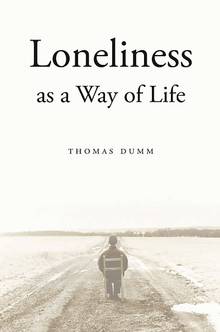Loneliness as a Way of Life
Dumm, Thomas
Éditeur : HARVARD UNIVERSITY PRESS
ISBN papier: 9780674047884
Parution : 2010
Code produit : 1215292
Catégorisation :
Livres /
Sciences humaines /
Philosophie /
Philosophie
Formats disponibles
| Format | Qté. disp. | Prix* | Commander |
|---|---|---|---|
| Livre papier | En rupture de stock** |
Prix membre : 15,92 $ Prix non-membre : 17,69 $ |
*Les prix sont en dollars canadien. Taxes et frais de livraison en sus.
**Ce produits est en rupture de stock mais sera expédié dès qu'ils sera disponible.
Description
“What does it mean to be lonely?” Thomas Dumm asks. His inquiry, documented in this book, takes us beyond social circumstances and into the deeper forces that shape our very existence as modern individuals. The modern individual, Dumm suggests, is fundamentally a lonely self. Through reflections on philosophy, political theory, literature, and tragic drama, he proceeds to illuminate a hidden dimension of the human condition. His book shows how loneliness shapes the contemporary division between public and private, our inability to live with each other honestly and in comity, the estranged forms that our intimate relationships assume, and the weakness of our common bonds. A reading of the relationship between Cordelia and her father in Shakespeare’s King Lear points to the most basic dynamic of modern loneliness—how it is a response to the problem of the “missing mother.” Dumm goes on to explore the most important dimensions of lonely experience—Being, Having, Loving, and Grieving. As the book unfolds, he juxtaposes new interpretations of iconic cultural texts—Moby-Dick, Death of a Salesman, the film Paris, Texas, Emerson’s “Experience,” to name a few—with his own experiences of loneliness, as a son, as a father, and as a grieving husband and widower. Written with deceptive simplicity, Loneliness as a Way of Life is something rare—an intellectual study that is passionately personal. It challenges us, not to overcome our loneliness, but to learn how to re-inhabit it in a better way. To fail to do so, this book reveals, will only intensify the power that it holds over us.























